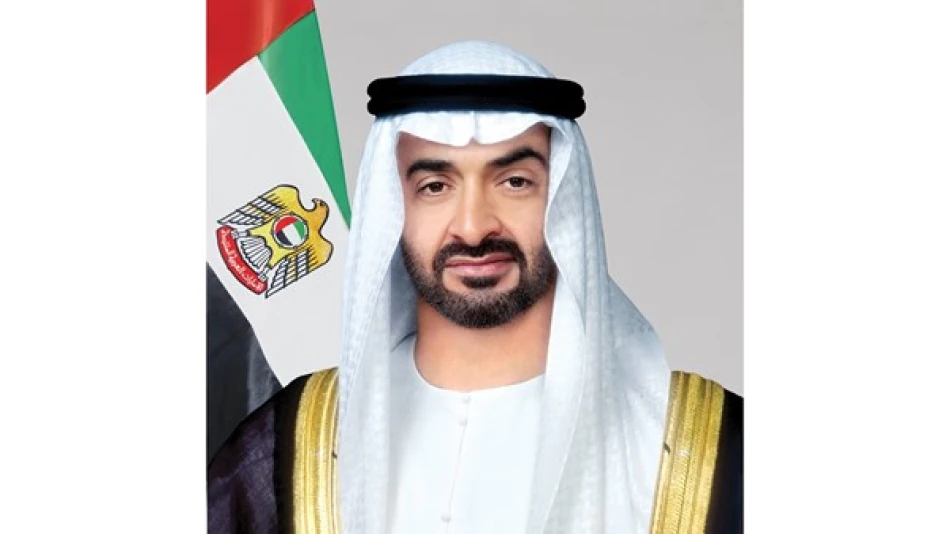
UAE President Completes Successful State Visit to Turkey, Strengthening Bilateral Ties
UAE President Concludes Strategic State Visit to Turkey, Signaling Deepening Gulf-Turkish Relations
UAE President Sheikh Mohammed bin Zayed Al Nahyan has concluded a high-profile state visit to Turkey, accompanied by a senior delegation including royal family members, cabinet ministers, and top government officials. The visit represents a significant milestone in the normalization of relations between the Gulf powerhouse and Turkey, following years of regional tensions and competing geopolitical interests.
A Strategic Reset in Regional Diplomacy
The formal state visit underscores the UAE's commitment to rebuilding bridges with Turkey after a period of strained relations that peaked during the Arab Spring and subsequent regional conflicts. The two nations found themselves on opposite sides of key issues, including the Muslim Brotherhood's role in regional politics and competing approaches to conflicts in Libya and Syria.
This diplomatic thaw began gaining momentum in 2021, when the UAE and Turkey started exploring economic cooperation opportunities despite their political differences. The presence of senior Emirati royals and ministers during this visit signals that both nations are moving beyond transactional engagement toward strategic partnership.
Economic Implications and Investment Opportunities
Trade and Investment Potential
The UAE-Turkey relationship holds significant economic promise, with bilateral trade already exceeding $19 billion annually. Turkey's strategic location as a bridge between Europe and Asia, combined with the UAE's position as a regional financial hub, creates compelling synergies for increased cooperation.
For investors, this diplomatic warming trend opens new avenues in sectors ranging from real estate and tourism to technology and renewable energy. Turkish companies gain enhanced access to Gulf capital markets, while Emirati firms can leverage Turkey's manufacturing capabilities and European market access.
Regional Economic Integration
This partnership reflects a broader trend of economic pragmatism overriding political differences across the Middle East. Similar to how the UAE normalized relations with Israel through the Abraham Accords, focusing on economic benefits, the Turkey engagement demonstrates the Emirates' flexible approach to regional diplomacy.
Geopolitical Calculations and Regional Balance
The visit occurs against the backdrop of shifting regional dynamics, including Iran's continued regional influence, ongoing conflicts in Yemen and Syria, and the evolving relationship between Gulf states and global powers. Turkey's unique position as a NATO member with independent foreign policy ambitions makes it an attractive partner for the UAE's diversification strategy.
This engagement also reflects both nations' desire to reduce dependence on traditional allies and build more autonomous regional policies. For Turkey, closer ties with the UAE provide access to Gulf investment at a time when the Turkish economy faces significant challenges. For the UAE, the relationship offers strategic depth and alternative partnerships beyond its traditional Western and Asian allies.
Looking Forward: Sustainable Partnership or Tactical Alignment?
The success of this diplomatic reset will largely depend on both nations' ability to compartmentalize their remaining differences while building concrete economic and strategic cooperation. The high-level nature of this visit, evidenced by the senior delegation's composition, suggests genuine commitment to long-term partnership rather than mere diplomatic courtesy.
However, structural challenges remain, including Turkey's continued relationships with groups that the UAE considers problematic, and potential future disagreements over regional conflicts. The key test will be whether economic incentives and pragmatic cooperation can create sufficient momentum to overcome these underlying tensions.
For regional observers, this UAE-Turkey rapprochement represents part of a broader recalibration of Middle Eastern alliances, where economic interests and pragmatic cooperation increasingly outweigh ideological differences in shaping diplomatic relationships.
Most Viewed News

 Layla Al Mansoori
Layla Al Mansoori






